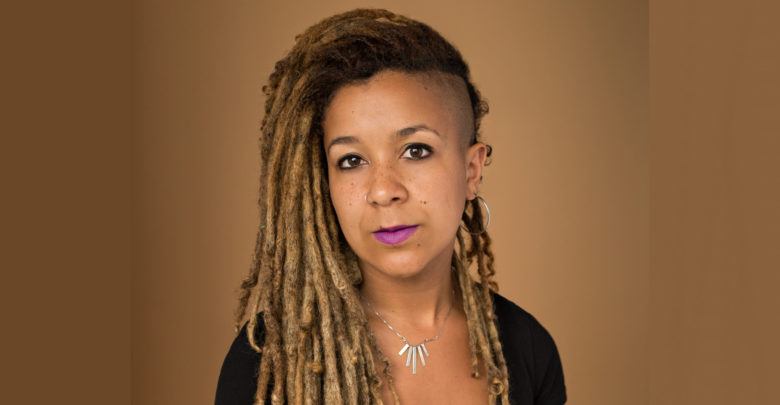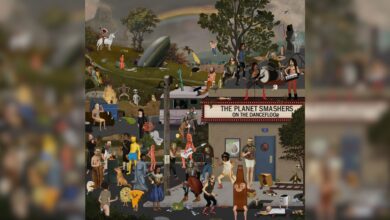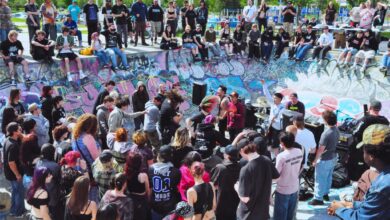Robyn Maynard discusses ‘Policing Black Lives’ in lectureship at the U of A
Author and scholar Robyn Maynard shone a light on experiences of Black people in the past five years.
 Stacy Lee Photography
Stacy Lee Photography2020 brought many things to light for this generation. The continuing pandemic has shown how minority communities have suffered with a high percentage of lay-offs and less funding opportunities, and how racially uneven North America is.
In response to this, the Black Lives Matter movement has rocked both the United States and Canada in order to bring to light how much work has yet to be done to eliminate these inequalities.
On November 23, the University of Alberta held a Visiting Lectureship in Human Rights inviting Robyn Maynard to discuss her book Policing Black Lives in the context of the movements happening today.
Maynard is both an author and scholar who focuses her studies on Black lives and culture. In this lectureship, Maynard focused on the racial reckonings, not only of the last year, but the ones that have been happening every few years since the Civil Rights Movement in the 1960s, and even before that.
Maynard argues that people generally find Blackness in Canada “as a surprise each and every time that it occurs,” believing systemic racism to be “an American problem.” But this problem is just as prevalent in Canada as it is elsewhere in North America, and is an ongoing issue that needs to be dealt with.
Maynard points to the statistics published in Nova Scotia stating that Black people were six times more likely to be stopped by police on the street. She also pointed to teachers putting on Blackface, students in Ontario getting pushed into applied courses rather than academic courses, and the lack of representation (or the presence of offensive representation) within the classroom being only a few of the issues facing Black people in Canada today.
The 2020 protests, as well as with previous protests, are the outcome of their refusal to accept these conditions.
“The largest protest movement of a generation is coming not only in the wake of recent incidents but is something that is the response to a long standing, long institutionalized form of devaluing Black peoples’ lives,” Maynard explains.
“We saw protestors and young people in the street who saw how little has been done since Trayvon [Martin], since Andrew Loku, since Ferguson.”
Maynard states that there is an illusion of changing in societal values, however, this change is much further away than anyone may think.
“In the introduction of my book…I wrote that the outward explicit expressions of racist thought were no longer as publicly acceptable [as before,] though I said this appears to be shifting,” she said.
“We saw the shift very significantly with the return of 2016 to older and more explicit forms of racial violence of open derision and hostility to Black communities, to Muslim communities, and open violent hostility towards migrants.”
Maynard argues that policing and cages were the response of the government to handle inequality within the government. When Justin Trudeau responded to the redirection of police authority, he advocated outfitting more police with body cameras. The Toronto City Council even passed a motion to increase the funding of their police force to implement similar reforms, with roughly $34 million going towards purchasing more body cameras for their police force. Maynard argues that this only modernized harm, leading to the filming of more people being harmed.
Instead, this money should be seen as an investment in communities, and redirected into programs and abilities that would support and aid those who are affected. Maynard advocates to spend the money “for issues like mental health crises, for issues like gender-based violence, and… actually invest[ing] in real community solutions.”
Maynard argued that the pandemic has shown us the way that the world could be constructed. The pandemic gave hope to an entire generation for the possibility of a society “premised on life and living and care rather than death, destruction, and violently enforced hierarchies.” There can be change. It only depends on the order of priority.
You can read more about Maynard on her website and on the University of Alberta Visiting Lectureship page. To view past Visiting Lectureships in Human Rights that University of Alberta has hosted, visit the archives here.
Get your copy of Policing Black Lives today.




